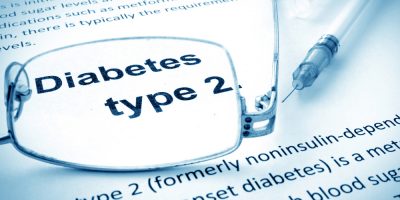- Home
- Editorial
- News
- Practice Guidelines
- Anesthesiology Guidelines
- Cancer Guidelines
- Cardiac Sciences Guidelines
- Critical Care Guidelines
- Dentistry Guidelines
- Dermatology Guidelines
- Diabetes and Endo Guidelines
- Diagnostics Guidelines
- ENT Guidelines
- Featured Practice Guidelines
- Gastroenterology Guidelines
- Geriatrics Guidelines
- Medicine Guidelines
- Nephrology Guidelines
- Neurosciences Guidelines
- Obs and Gynae Guidelines
- Ophthalmology Guidelines
- Orthopaedics Guidelines
- Paediatrics Guidelines
- Psychiatry Guidelines
- Pulmonology Guidelines
- Radiology Guidelines
- Surgery Guidelines
- Urology Guidelines
Use of topical corticosteroids may increase blood sugar and diabetes risk

Denmark: The use of topical corticosteroids (CSs) is associated with an increased blood sugar and elevated risk of incident type 2 diabetes (T2D), finds a new study published in the journal Diabetes Care.
Topical corticosteroids (steroids) are medications that are applied directly to the skin for reduction of inflammation and irritation. Topical corticosteroids are available in several different forms, including creams, lotions.
Topical corticosteroids (CSs) are commonly used to treat inflammatory skin conditions including eczema, seborrhoeic dermatitis, and psoriasis. Its adverse drug reactions include hyperglycemia and glycosuria. Yuki M.F. Andersen, M.D., from the University of Copenhagen in Hellerup, Denmark, and colleagues determined whether topical CS use in real life is also associated with an increased risk of type 2 diabetes.
Two matched case-control studies and one cohort study were conducted using routinely collected health care data from Denmark and the U.K. A total of 115,218 and 54,944 adults were identified as case subjects with new-onset T2D in the Danish and U.K. case-control study, respectively. For the Danish cohort study, 2,689,473 adults were included. The main exposure was topical CSs, and the outcome was incident T2D.
Also Read: Corticosteroids use in influenza pneumonia linked to increased mortality, ICU stay
Key findings of the study include:
- Topical corticosteroid use was significantly associated with T2D in the Danish (adjusted odds ratio, 1.35) and U.K. case-control studies.
- In the Danish cohort study, a similar association was seen for incident T2D among individuals who were exposed to topical corticosteroids.
- Significant dose-response relationships were seen between T2D and increasing potency of topical corticosteroids in the two Danish studies.
Also Read: Corticosteroids therapy for sepsis: New Clinical guideline
"We found a positive association between topical CS prescribing and incident T2D in Danish and U.K. adult populations. Clinicians should be cognizant of possible diabetogenic effects of potent topical CSs," concluded the authors.
For detailed study log on to https://doi.org/10.2337/dc18-2158

Disclaimer: This site is primarily intended for healthcare professionals. Any content/information on this website does not replace the advice of medical and/or health professionals and should not be construed as medical/diagnostic advice/endorsement or prescription. Use of this site is subject to our terms of use, privacy policy, advertisement policy. © 2020 Minerva Medical Treatment Pvt Ltd